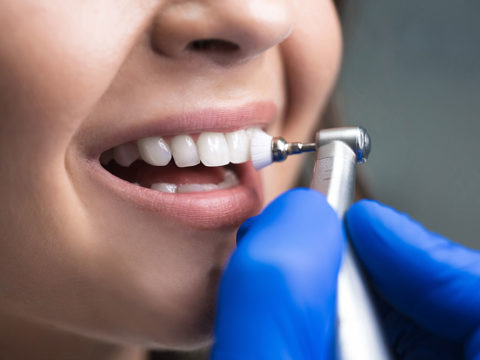How Long After Teeth Whitening Can I Eat Normally?
Teeth whitening is a quick, easy and affordable way to get the smile you’ve always dreamed of!
Whether you opt for at-home products or in-chair whitening with your dentist, you can quickly lighten your teeth by 3-7 shades. That makes a big difference to the look of your smile, and it can give you the confidence you’ve been searching for.
Most teeth whitening procedures involve bleaching the teeth with a mild acid. This doesn’t harm the tooth or the enamel, but it can remove build ups of stains that come from food, coffee and smoking.
While they won’t damage your teeth, the products used for whitening can leave your teeth susceptible to staining for a few days after the procedure. For best results, you should stick to the diet provided by your dentist during the whitening process.
In this article, we’ll answer one of the questions we hear most often – How long after teeth whitening can I eat normally? We’ll also take a look at the whitening process and any foods and drinks you should avoid to get the best results possible!
How Long After Teeth Whitening Can I Eat?
You can resume your normal diet 24-72 hours after professional teeth whitening. During this period it’s important not to eat or drink tea, coffee, soft drink and wine. You should also avoid high-sugar foods (such as lollies).
Avoid the following foods and drinks after a teeth-whitening procedure:
- Tea and coffee
- Smoking
- Soft drinks (especially cola)
- Lollies and chocolate
- Acidic foods (such as citrus fruits and sour lollies)
- Curries
- Dyed foods
- Wine and beer
- Coloured toothpaste and mouthwash
Teeth may also be sensitive for up to 1 week after whitening, so avoid hot or cold foods if they cause discomfort.
Always follow your dentist’s instructions during the teeth whitening process. If you’ve opted for an at-home whitening product, speak to your dentist about what you can and can’t eat.
How Does Teeth Whitening Work?
Having your teeth whitened by your dentist means you’ll need to eat a special diet for a few days afterwards. To understand why that is, we need to look at how teeth whitening works.
Human teeth have a natural white hue to them. This white colouration is thanks to the enamel – the hard, outer layer of the tooth.
Tooth enamel is a calcified substance that protects the soft internal parts of your teeth from damage. However, tooth enamel is porous, and it can become stained due to normal eating and drinking. This often results in your teeth taking on a slightly yellow colour. Some tooth discolouration is normal as you age, but many people don’t like how it looks.
The only way to undo the staining of your teeth is through whitening. Tooth whitening uses mild acids such as hydrogen peroxide to bleach the teeth.
Hydrogen peroxide treatments cause the pores in your tooth enamel to open slightly, allowing the treatment into the pores where a chemical reaction bleaches any discolouration.
Opening the natural pores of your teeth makes them slightly more sensitive for a few days, and it makes them more prone to staining for up to 1 week after treatment. After this, the pores will shrink back to their normal size and will be less susceptible to staining.
Types of Tooth Whitening
There are several popular methods for whitening and brightening teeth. The method you choose has an impact on the results and how susceptible your teeth are to staining after the procedure.
Your dentist will usually recommend one of two treatment options:
- In-chair whitening. This is where your dentist performs the whitening procedure during your dental appointment. In-chair whitening is the most effective way to brighten your teeth. Qualified dentists have access to strong whitening solutions that are not publicly available. These products can whiten your teeth in 45-60 minutes.
- At-home whitening. At-home whitening kits are an affordable alternative, but it can take multiple weeks to achieve the results you are looking for. Your dentist can provide an at-home whitening kit that contains similar products to the ones used during in-chair procedures. These products are effective and are a good alternative to in-chair whitening.
Other options (such as laser whitening) performed by unqualified practitioners should be avoided. Unregulated treatments can damage your teeth, increase sensitivity and make you more prone to cavities and other oral health problems.
Get the Perfect Smile with Professional Teeth Whitening at Camira Dental!
Whitening your teeth is a simple and effective way to transform the look of your smile. Modern whitening products are safe to use and they won’t damage your teeth when applied by a professional. If you’re unhappy with how your teeth look, talk to Camira Dental about in-chair or at-home teeth whitening!
Camira Dental is an experienced dentist based in Ipswich. We work with patients of all ages, providing everything from routine checkups to cosmetic dentistry procedures.
Teeth whitening is one of our most popular services. We use the latest whitening compounds to brighten your teeth without affecting the protective enamel coating. Our in-chair whitening procedures are an excellent option for most, but we can also provide you with an at-home bleaching kit if that better suits your needs.
We’ll need to assess your teeth and oral health before recommending a whitening procedure. If you’re interested, book a consultation and we’ll help you work towards the smile you deserve!









